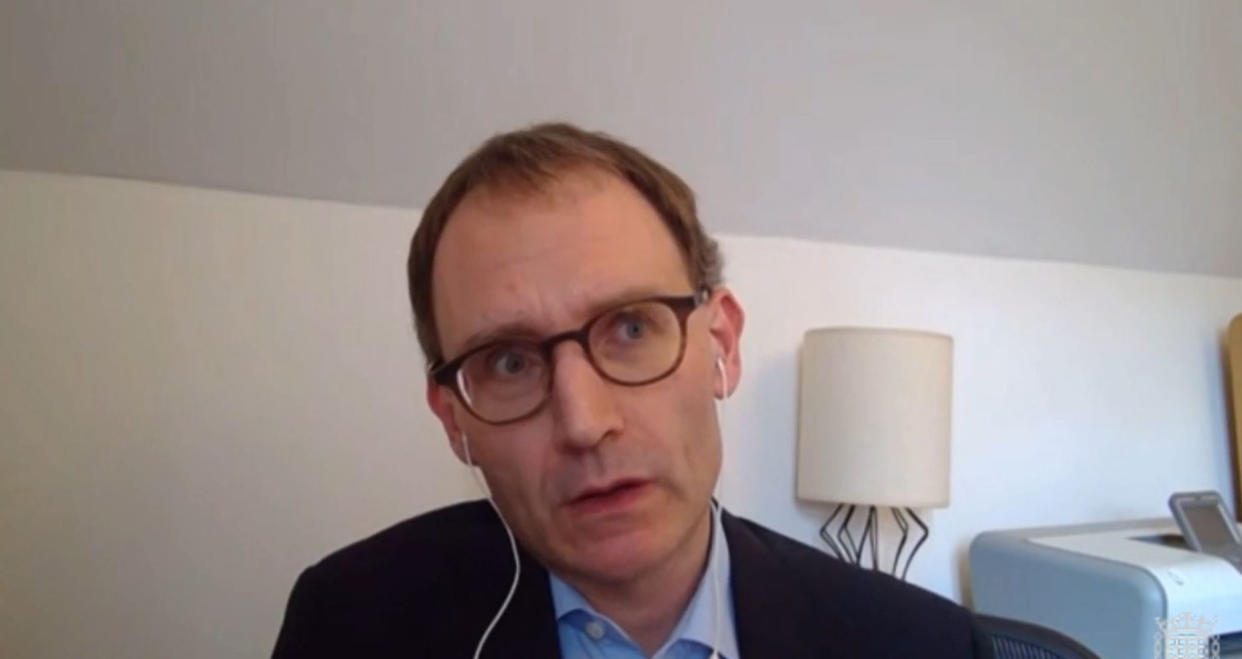Coronavirus R value 'will go up' when schools are reopened, former government adviser warns

The rate of transmission of coronavirus – known as the R value – “will go up” once schools are reopened in England next month, a former government adviser has warned.
Professor Neil Ferguson – who resigned from the government's advisory group Sage after he was found he had broken lockdown guidelines – said ministers "need to plan for all contingencies" when it comes to the reopening of schools.
He said that while there was evidence to suggest young children in primary schools “pose very little risk of transmission”, there was “concern” with older students.
Ferguson told BBC Radio 4's Today programme: "The risk then is that big schools, comprehensives, universities, FE colleges, link lots of households together, reconnect the social network which social distancing measures have deliberately disconnected.
“And that poses a real risk of amplification of transmission, of case numbers going up quite sharply.”

He added: "In terms of the reproduction value, the R value, opening high schools could increase it by as much as a half, but by as little as 0.2 or 0.3, but it will go up.
"Given we're at R equal to 1 at the moment, clearly we don't want R going up to 1.5 or so – that would… lead to quite rapid growth of the epidemic.”
The government previously announced that schools in England would reopen in September, with attendance mandatory.
But Ferguson said there will have to be "some tightening up" of restrictions if opening schools raises the R number.
He added: "Whether, in high schools, FE colleges, it is necessary for children to go back 100% or whether we can have other alternative means of provision, children being in one week and out the other week, therefore reducing contacts in school and outside school, or whether we row back on the relaxation of restrictions in the rest of society to allow schools to be fully opened, for instance social venues, leisure venues, more working from home – those things.
"I mean that really is a policy decision, but I'm just saying, in my view, it is likely that some form of those measures will be necessary to maintain control of transmission.”
‘Tough decisions’
Shadow health secretary Jonathan Ashworth said Labour would accept "tough decisions" to make sure children can get back to school in England in September.
Ashworth told Today: ”We think that getting children back into school has to be an absolute national priority – they have to be back into school safely and we need to use these next four weeks of August to get really on top of these infections, to drive them down by improving testing and tracing.”

Ashworth continued: "I can't get ahead of the advice from Sage or the chief medical officer, but quite clearly Chris Whitty said we are at the limits now of what restrictions can be eased, and if tough decisions have to be made, if restrictions have to be reimposed in order to get children back into school, then of course we would accept that.”
He added that face coverings for older children in schools "should be considered".
Children in schools ‘a priority’
Schools minister Nick Gibb has confirmed the government's position that all children will return to school in September.
He told Sky News: "It is hugely important for children's education, for their wellbeing, that they do return to school and schools are working enormously hard in preparation for September to make sure that the risk of transmitting the virus within the school environment is kept to an absolute minimum.”

"We have issued very detailed guidance to schools about hygiene, about keeping children in these bubbles – class-sized bubbles in primary schools, year-group bubbles in secondary schools – making sure children aren't unnecessarily mixing with other children in the school, staggered lunch breaks, staggered play times, doing everything that we can to minimise contact – one-way systems through schools and so on – so that children are safe in school."
Schools ‘must come before pubs and shops’
Children's commissioner for England Anne Longfield has warned that schools must be prioritised over pubs and shops in planning for future lockdowns.
She said children had too often been "an afterthought" during the first lockdown as she published a paper setting out the key actions needed to ensure that youngsters are "at the heart" of future plans.

She argued that if any local or national lockdown takes place, schools should be the last places to be locked down, after pubs, restaurants and non-essential shops.
Longfield said reducing COVID-19 transmission in the community is very important "but it should not be automatically assumed that this requires closing schools – except as a last resort”.
If schools do have to close, she said, they must remain open for children of key workers and vulnerable children.
Coronavirus: what happened today
Click here to sign up to the latest news and information with our daily Catch-up newsletter



